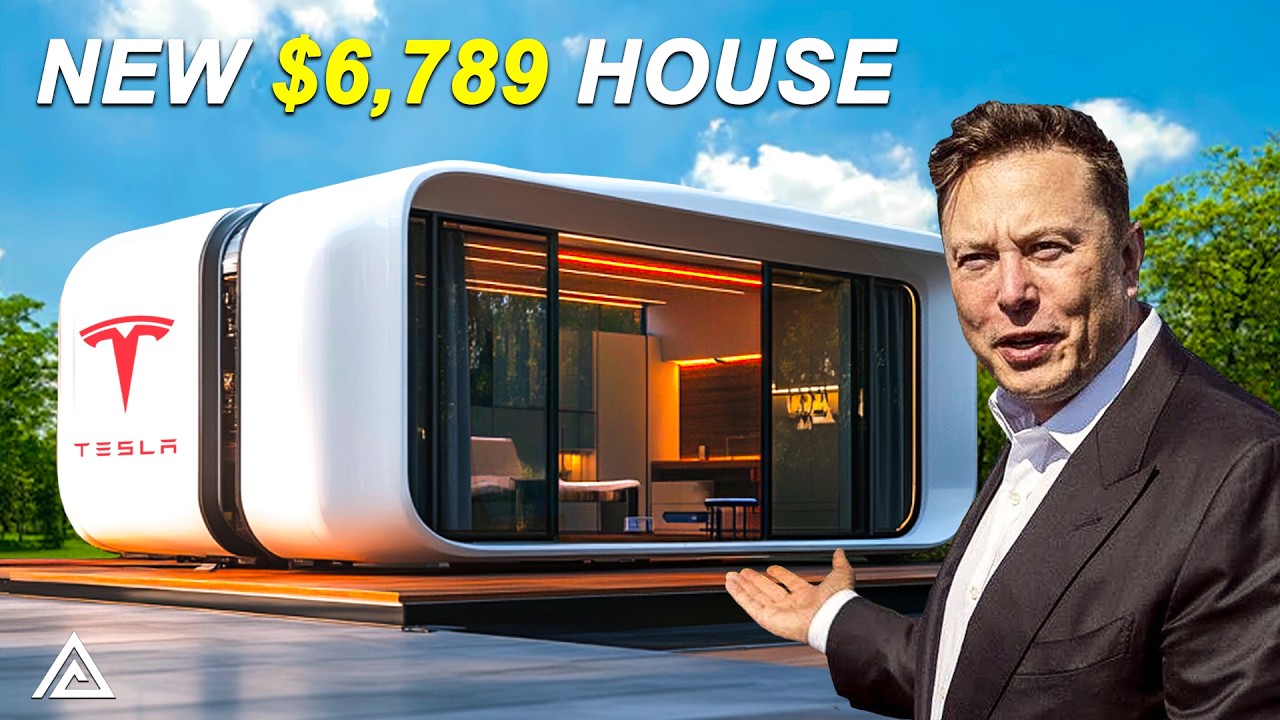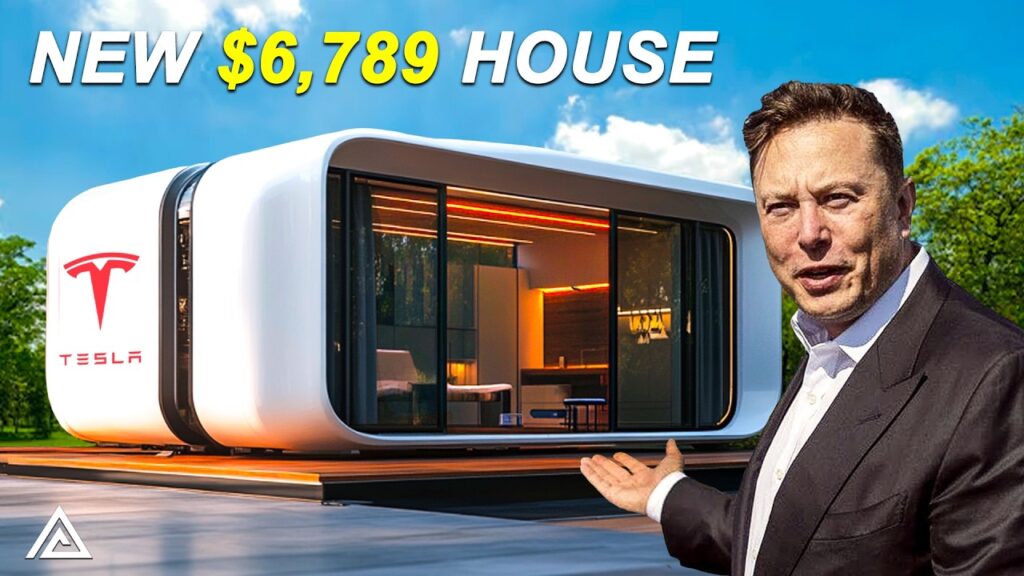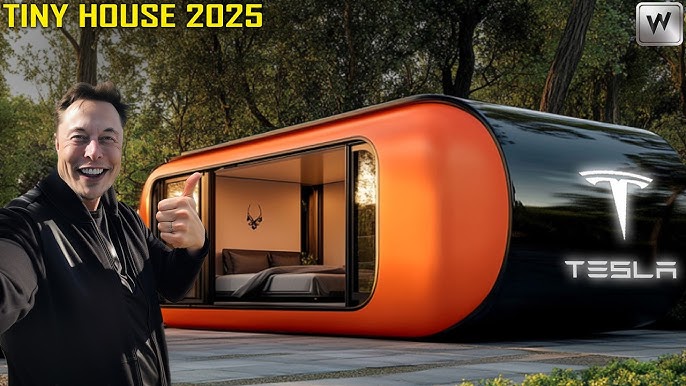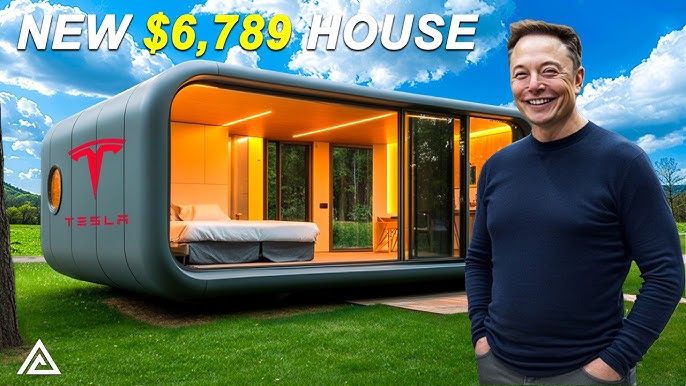
Elon Musk, the billionaire visionary behind Tesla and SpaceX, is known for tackling some of the world’s biggest challenges, from sustainable energy to space exploration. Now, he’s setting his sights on one of the most pressing issues facing millions of Americans: affordable housing. Musk’s much-anticipated $6,789 tiny house has finally hit the market, sparking excitement and speculation across the internet. This affordable housing concept could be more than just a low-cost option; it represents a potential game-changer for those struggling to achieve the dream of homeownership in an era of skyrocketing property prices.

The Tiny House Revolution: Musk’s Vision for Affordable Housing
Elon Musk’s $6,789 tiny house, produced in collaboration with the sustainable housing company Boxabl, is designed to provide a cost-effective, sustainable, and minimalist living solution. The compact home, while modest in size, aims to provide essential amenities without the high costs of traditional housing. For Musk, this venture aligns with his mission to make impactful innovations accessible to everyone. If successful, the project could serve as a model for affordable housing, offering a practical, low-cost solution for those facing economic constraints.

With an estimated size of around 375 square feet, Musk’s tiny house packs a bedroom, living area, bathroom, and kitchenette into a highly functional and space-efficient design. The layout focuses on minimalism and efficiency, using sustainable materials and energy-efficient appliances to reduce environmental impact. The home can be folded and transported, making it easy to set up and relocate, which is especially beneficial for people seeking flexible living arrangements or those impacted by natural disasters.
Addressing America’s Affordable Housing Crisis
In recent years, property prices in many parts of the United States have surged, outpacing wage growth and making homeownership increasingly out of reach for average Americans. Musk’s $6,789 tiny house directly addresses this problem by offering a home that costs a fraction of the average house price. This new housing model could provide a lifeline for first-time buyers, individuals with lower incomes, and people facing financial hardships.
Beyond affordability, Musk’s tiny house aims to provide a sustainable and eco-friendly living option. The compact design requires fewer resources to build and maintain, while energy-efficient appliances help reduce utility costs. This is a crucial step toward creating housing solutions that are not only affordable but also environmentally responsible, an aspect that aligns with Musk’s broader commitment to sustainable innovation.
How Musk’s Tiny House Could Transform the Housing Market
The release of Musk’s tiny house signals a potential shift in the housing market, particularly for the rising demographic interested in minimalist, affordable living. The concept of tiny homes is not new, but Musk’s backing and the home’s ultra-low price point bring unprecedented attention and credibility to the movement. If widely adopted, these tiny homes could become a viable alternative for millions, leading to a cultural shift where homeownership is defined not by size but by affordability, sustainability, and practicality.

Moreover, Musk’s tiny house could pave the way for broader innovations in modular and prefab housing. By embracing factory-built, foldable homes, the real estate industry could lower construction costs and speed up housing production. This could benefit regions facing housing shortages, allowing for quick deployment of affordable homes without lengthy construction times.
Challenges and Potential Barriers to Adoption
While the idea of a $6,789 tiny house is promising, there are challenges to widespread adoption. Zoning laws and building codes vary significantly across the United States, and some areas have restrictions on small or prefab housing units. Addressing these regulatory hurdles will be essential to making Musk’s vision a reality nationwide. Additionally, while the home’s small size appeals to those embracing minimalism, some individuals may find it challenging to adapt to a tiny living space, especially families or those used to larger homes.
However, if Musk’s housing concept can gain traction and overcome regulatory obstacles, it could inspire policymakers to revise outdated zoning laws, opening the door for more affordable housing options in communities across the country.
A New Era for Homeownership?
Elon Musk’s $6,789 tiny house could redefine homeownership, especially for young adults and low-income families who have been priced out of the traditional housing market. This innovative approach offers a fresh perspective on what it means to own a home, shifting the focus from luxury and size to functionality, affordability, and sustainability. By making homeownership accessible to a broader population, Musk’s tiny house has the potential to empower individuals and families to achieve stability and independence, even in challenging economic times.
With Musk’s influence and resources, there’s a real possibility that this tiny house could become a mainstream option. The concept aligns with the growing interest in sustainable living and minimalist lifestyles, both of which have gained popularity in recent years. As this tiny house model reaches the market, it may inspire other developers and companies to explore similar affordable housing options, contributing to a broader movement aimed at making housing more accessible.
What’s Next for Musk’s Tiny House Initiative?
As Musk’s $6,789 tiny house gains attention, the future of affordable housing may look very different. The potential success of this initiative could lead to expanded production, making tiny homes a standard part of the housing landscape. Additionally, advancements in sustainable building materials, solar power, and smart home technology could further enhance the functionality and appeal of these compact homes.
Ultimately, Elon Musk’s tiny house project isn’t just about offering a low-cost living solution — it’s about reshaping the housing industry to prioritize affordability, sustainability, and accessibility. If Musk and his team can deliver on their promises, the $6,789 tiny house could mark the beginning of a new era in housing, one where homeownership is attainable for more people than ever before.